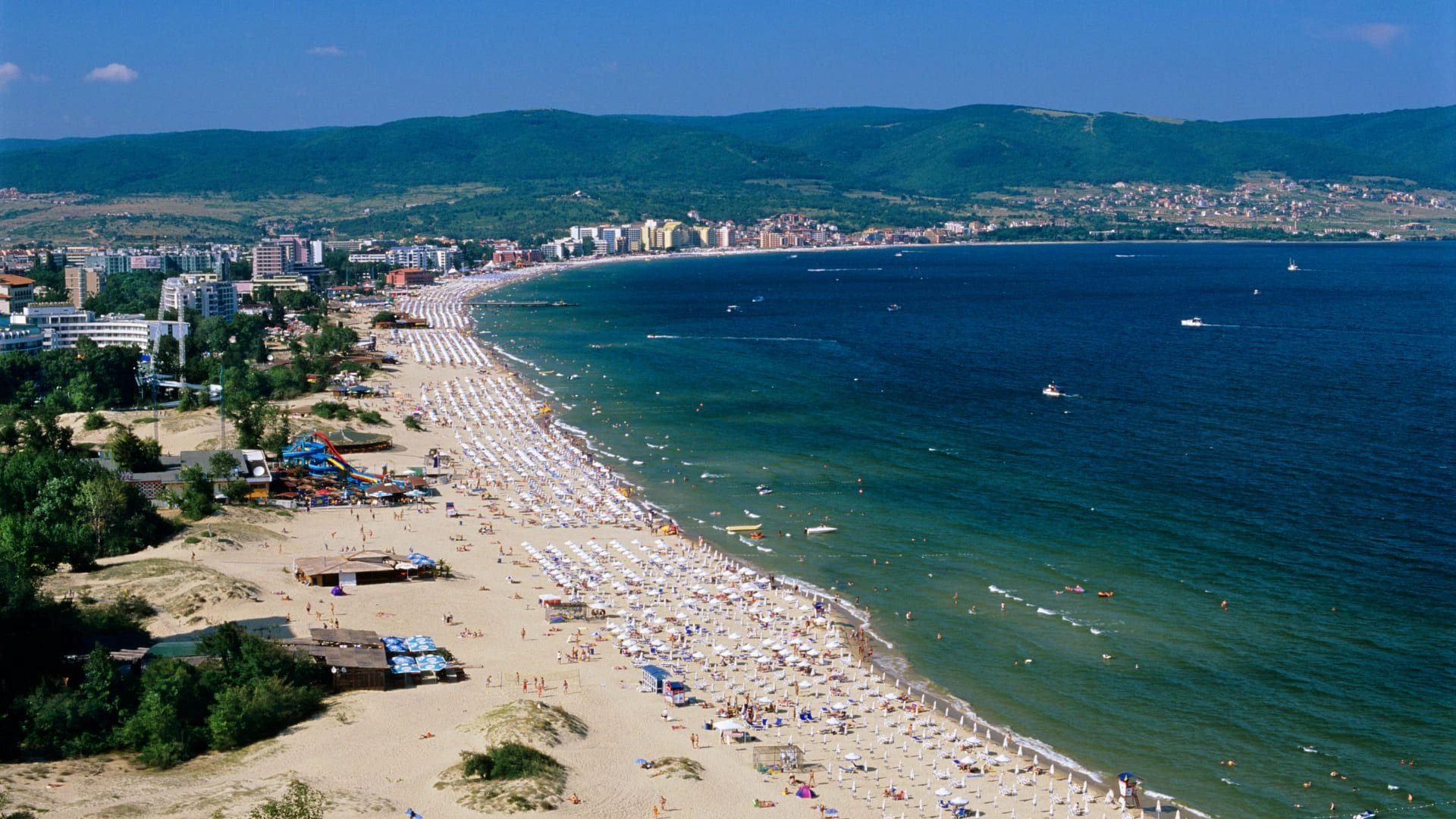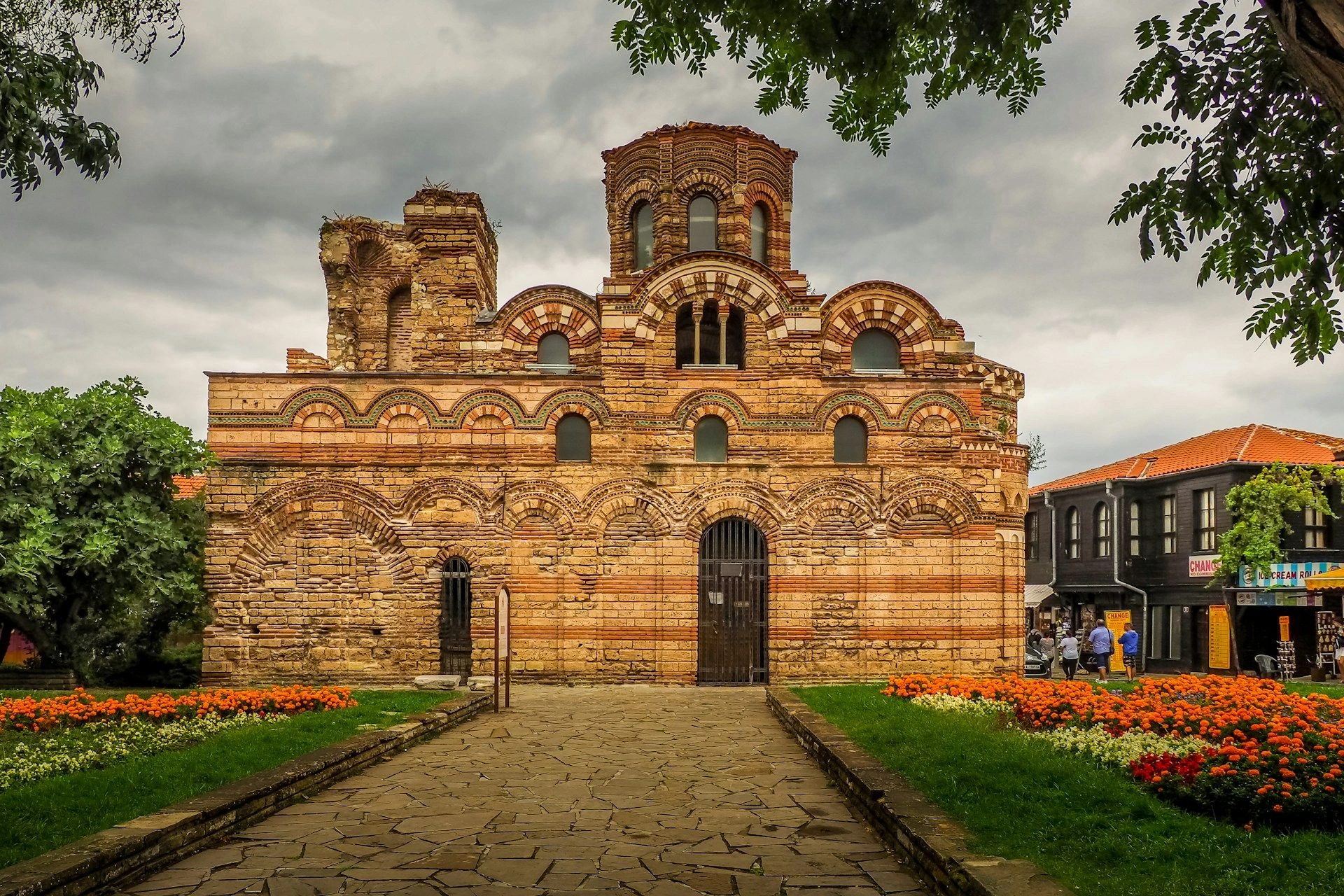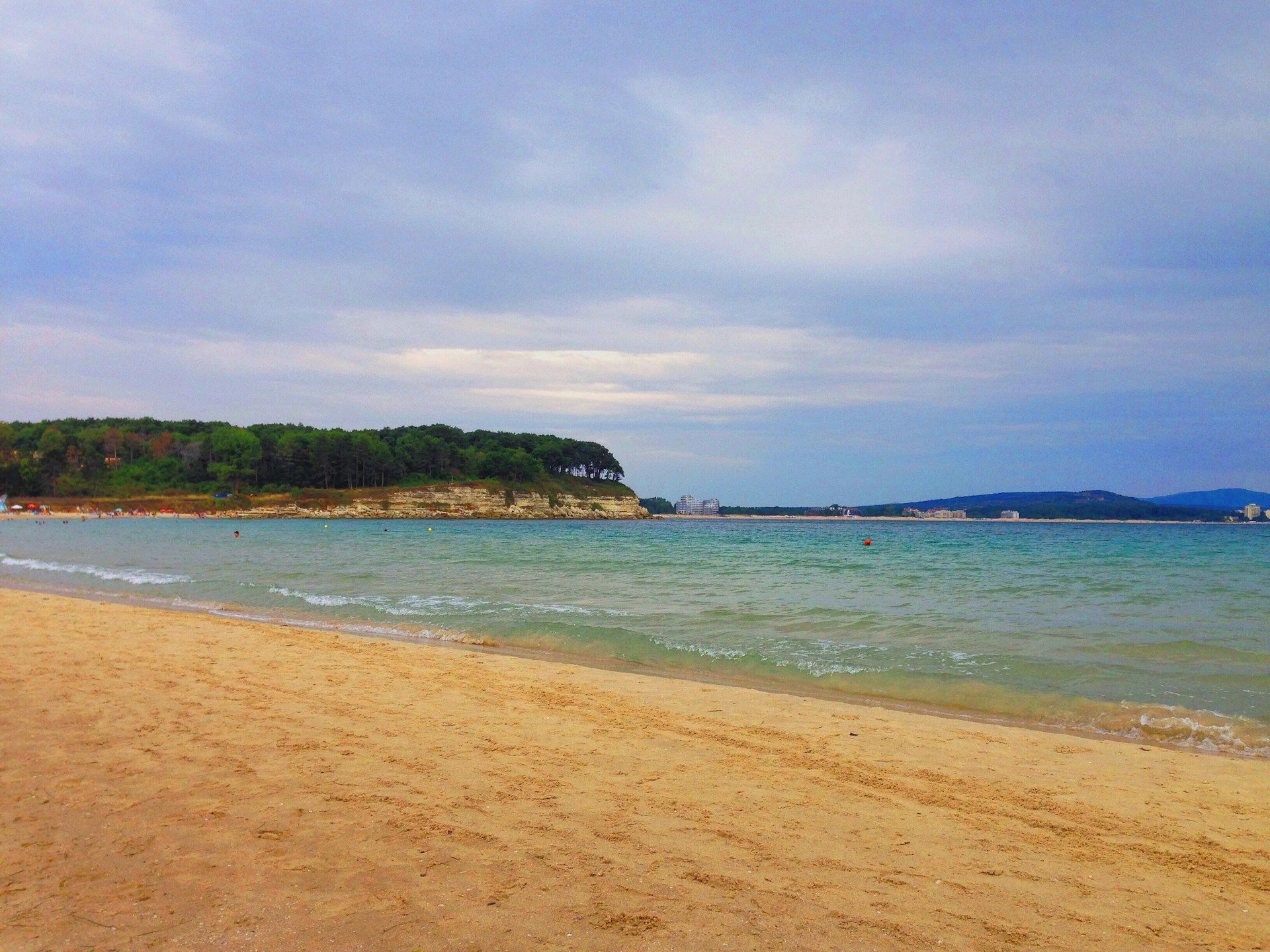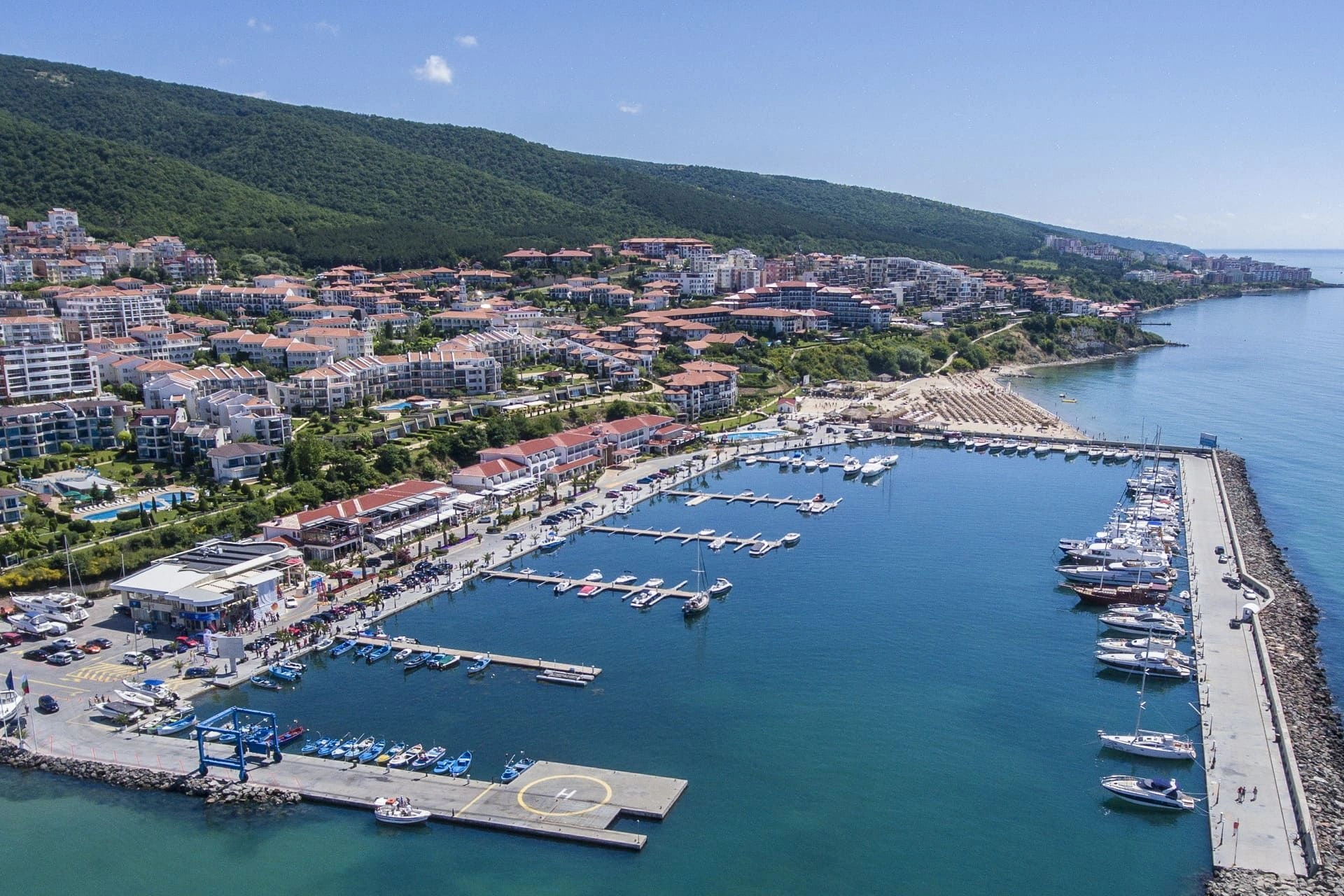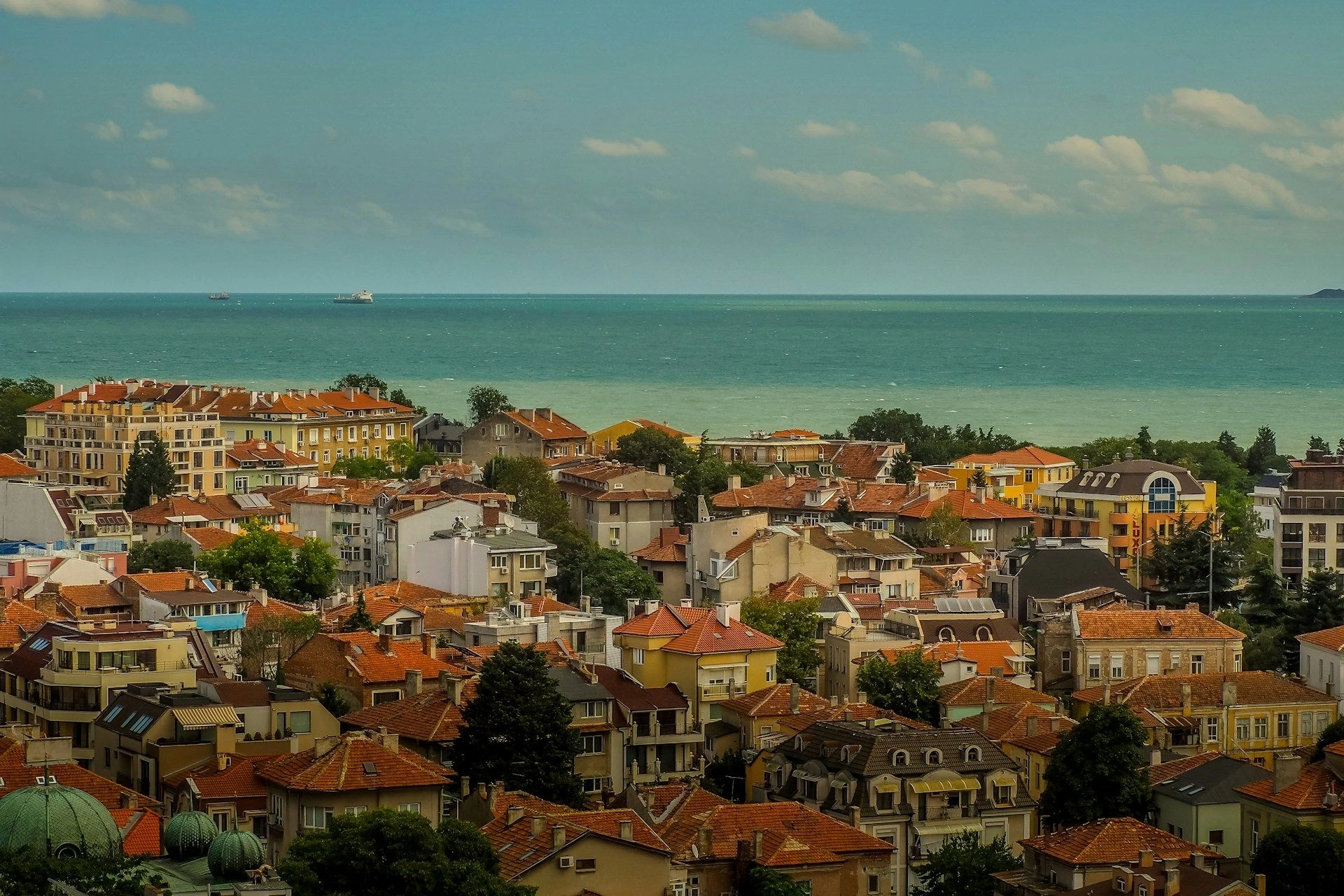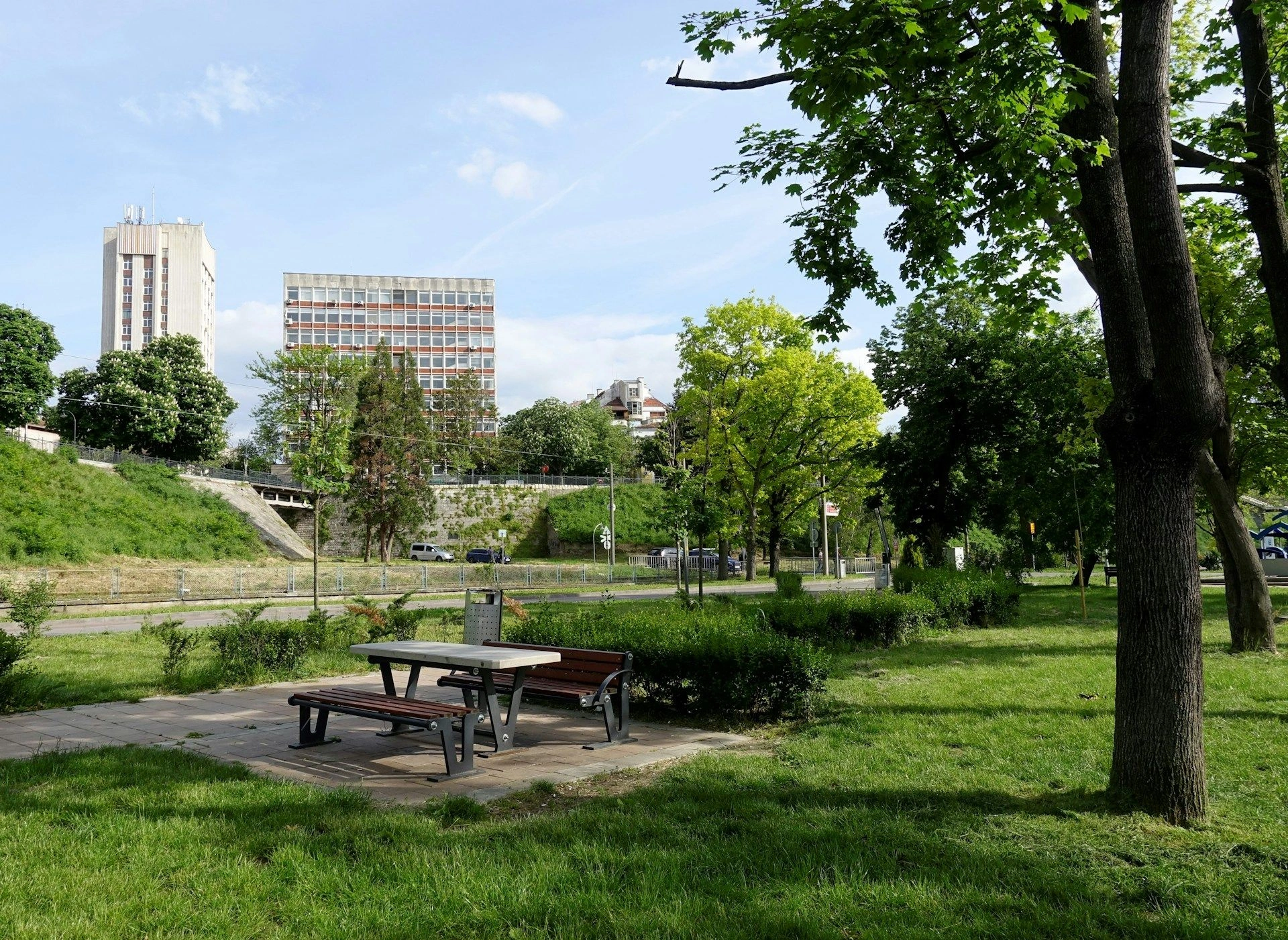Land Plots in Bulgaria for Development & InvestmentLand of cliffs, cuisineand calm shores

Popular
cities and regions in Bulgaria
Best offers
in Bulgaria
Benefits of investment in
Bulgaria real estate

Guide for real estate
investors in Bulgaria
read here
Affordable investment near the Black Sea
Varna and Burgas offer coastal properties with low prices and seasonal rental potential.
Sofia — an emerging urban market
The capital has seen steady demand growth from locals and regional professionals.
EU member with simple purchase process
Buying property in Bulgaria is straightforward, especially for EU citizens.
Affordable investment near the Black Sea
Varna and Burgas offer coastal properties with low prices and seasonal rental potential.
Sofia — an emerging urban market
The capital has seen steady demand growth from locals and regional professionals.
EU member with simple purchase process
Buying property in Bulgaria is straightforward, especially for EU citizens.
Property highlights
in Bulgaria, from our specialists
Found: 0

Useful articles
and recommendations from experts
Land Investment in Bulgaria: Market Trends and Opportunities
Investing in land in Bulgaria has emerged as a highly attractive option for international investors who seek diversification in stable yet growing markets. Over the past decade, the Bulgarian property market has steadily evolved, combining affordability with considerable growth potential. Many investors are increasingly searching for “land investment Bulgaria” opportunities that not only promise robust returns but also offer a chance to secure a foothold in one of Eastern Europe’s most dynamic real estate landscapes.
Bulgaria’s economic stability, bolstered by steady GDP growth and low inflation rates, has created an inviting climate for investors. The country’s accession to the European Union has further reinforced investor confidence by aligning local regulations with broader European standards and providing access to EU funding for infrastructure projects. This supportive framework has naturally sparked interest in “buying land in Bulgaria” among foreign investors, who are drawn to both the commercial and residential sectors.
Moreover, Bulgaria’s land market benefits from a unique blend of historical charm and modern development. Many areas, particularly around urban centers and tourist hotspots, are experiencing revitalization efforts and modern infrastructural enhancements. Rising interest in sustainable and organic farming also contributes to the growth in demand for “Bulgaria agricultural land,” while burgeoning tourism has boosted the market for commercial and residential developments in coastal and mountain regions. The overall market trends underscore that land in Bulgaria is not only an asset for immediate development but also a strategic long-term investment.
Best Locations for Buying Land in Bulgaria
When discussing “Bulgaria land prices” and investment opportunities, location is key. Different regions across Bulgaria offer unique benefits, catering to varied investment strategies. For example, Sofia, the capital, is a prime location for those looking to invest in both residential and commercial properties. The city’s modern infrastructure, vibrant cultural scene, and status as an economic powerhouse make it one of the most sought-after destinations for land investment. Investors in Sofia have access to a dynamic market where high demand for property has steadily driven up land values.
Beyond Sofia, cities like Plovdiv and Varna provide equally compelling opportunities. Plovdiv, with its blend of ancient history and contemporary growth, is becoming a magnet for both residential developers and commercial enterprises. The city’s urban renewal projects and historical districts make it an ideal target for investors searching for “invest in Bulgarian property” opportunities that balance modern amenities with cultural heritage. Varna, on the other hand, leverages its status as a major port city along the Black Sea to attract commercial investments. The rising tide of tourism in Varna has not only increased the demand for hotels and resorts but has also fueled interest in retail and office space developments.
Furthermore, many investors are also turning their attention to Bulgaria’s rural regions. Areas such as the Danube Plain and the Thracian Valley offer fertile ground for agricultural investments. These regions are well known for their natural beauty and agricultural productivity, making them attractive for investors looking into “Bulgaria agricultural land” with potential for organic farming or vineyard projects. The diversity of locations—from bustling urban centers to serene countryside—ensures that investors have ample choices tailored to their specific investment goals.
Types of Land for Sale in Bulgaria and Their Uses
Understanding the different types of land available in Bulgaria is critical when considering a purchase. The country offers a spectrum of options, ranging from residential plots and commercial zones to agricultural fields and industrial sites. This variety is why many potential buyers use search terms like “commercial land in Bulgaria” and “Bulgaria land for sale” when exploring their options.
Residential land in Bulgaria is particularly appealing for developers interested in constructing housing complexes, luxury villas, or mixed-use developments that cater to both locals and expatriates. In urban areas such as Sofia and Plovdiv, the demand for residential projects is driven by rapid urbanization and an increasing need for modern housing solutions. Investors often appreciate the balance of affordability and quality in these markets, which in turn has helped sustain steady price growth.
In the realm of commercial real estate, Bulgaria offers prime opportunities for building office parks, retail centers, and hospitality venues. With the nation’s growing reputation as a tourism destination, properties in cities like Varna and Burgas have attracted significant attention from investors aiming to capitalize on the rising demand for hotels and resort developments. The strategic positioning of these coastal cities along the Black Sea makes them ideal for commercial ventures that serve both local markets and international tourists.
Agricultural land is another key asset that draws interest, particularly as global food security becomes an increasingly critical issue. Bulgaria’s rich soil and favorable climate are well-suited to various types of farming, including traditional crop production, organic agriculture, and even innovative agri-business ventures. This has led many investors to search for “Bulgaria agricultural land” opportunities where long-term cultivation projects can thrive. Additionally, the country’s scenic rural areas also offer potential for agro-tourism and sustainable development initiatives, further diversifying the use cases for agricultural land.
Finally, industrial land—often found in designated economic zones like the Trakia Economic Zone near Plovdiv—presents promising opportunities for manufacturing and logistics investments. These industrial areas are equipped with modern infrastructure, ensuring efficient transport and connectivity, which is crucial for businesses engaged in production and distribution. Investors in industrial land benefit from a supportive ecosystem that combines regulatory incentives with cost-effective operation environments.
Legal and Financial Aspects of Buying Land in Bulgaria
One of the most critical aspects of land investment in Bulgaria is navigating the legal and financial landscape, which may differ significantly from other European markets. Foreign investors, in particular, need to be well-informed about the legal framework and financial obligations associated with land purchases. Understanding these nuances is essential for those who frequently search for “legal aspects of buying land in Bulgaria” or “how to buy land in Bulgaria as a foreigner.”
For non-EU citizens, Bulgarian law mandates that land purchases can be made through a Bulgarian legal entity, typically in the form of a limited liability company (LLC). This requirement ensures that foreign investments are channeled in a manner that complies with local regulations. Investors should consult with local legal experts to establish the appropriate corporate structure, as this step is crucial for securing ownership rights and avoiding potential legal pitfalls.
The process of acquiring land in Bulgaria typically involves several key steps. Initially, investors must perform thorough due diligence to confirm the authenticity of the property title, identify any encumbrances, and ensure that the land is appropriately zoned for its intended use. Once due diligence is completed, a preliminary agreement is usually signed, which outlines the terms of the transaction, including the price, payment schedule, and other contractual obligations. This is followed by the formalization of the deal through a notary deed and subsequent registration of the property in the Bulgarian Land Registry. Each step in this process is designed to safeguard the interests of both the buyer and the seller, thereby fostering a secure investment environment.
From a financial perspective, several costs and taxes must be factored into any land investment strategy. Beyond the initial purchase price, investors should account for registration fees, notary fees, and potential legal consultation costs. Moreover, Bulgaria imposes local property taxes, which vary depending on the location and size of the land parcel. Annual maintenance costs and infrastructure contributions may also apply, depending on the development potential of the area. Many investors who search for “Bulgaria land prices” or “cost of buying land in Bulgaria” are particularly interested in understanding these recurring expenses, as they play a crucial role in the overall profitability of the investment.
In addition to these costs, foreign investors should be aware of the tax incentives available in Bulgaria. The government has introduced several measures to encourage foreign direct investment, including reduced tax rates for certain types of developments and incentives for environmentally sustainable projects. These benefits not only lower the initial financial burden but also enhance the long-term return on investment. Investors are advised to engage with local financial advisors to navigate these complexities and optimize their investment strategies accordingly.
Ultimately, successful land investment in Bulgaria hinges on a comprehensive understanding of both market dynamics and regulatory requirements. Whether you are interested in developing residential communities, tapping into the booming tourism industry, or embarking on large-scale agricultural projects, Bulgaria offers a wide array of opportunities. By leveraging current market trends, choosing the right location, understanding the diverse types of land available, and carefully navigating legal and financial frameworks, international investors can confidently pursue profitable ventures in this emerging market.
In conclusion, Bulgaria presents a compelling case for land investment. The combination of economic stability, affordable land prices, and diverse development opportunities makes it a prime destination for both seasoned and new investors alike. With careful planning and expert local guidance, those interested in “investing in Bulgarian property” can expect a rewarding journey that not only enhances their portfolios but also contributes to the ongoing transformation of Bulgaria’s dynamic real estate landscape.
